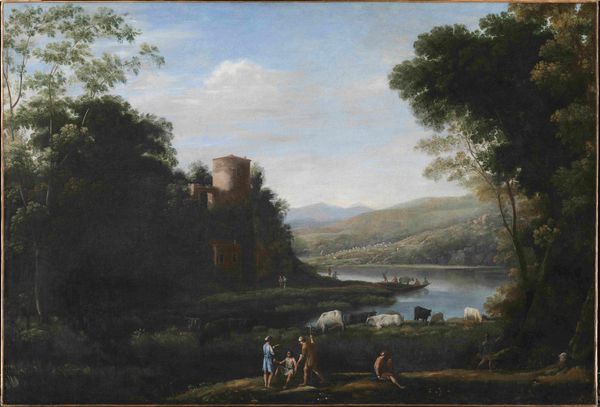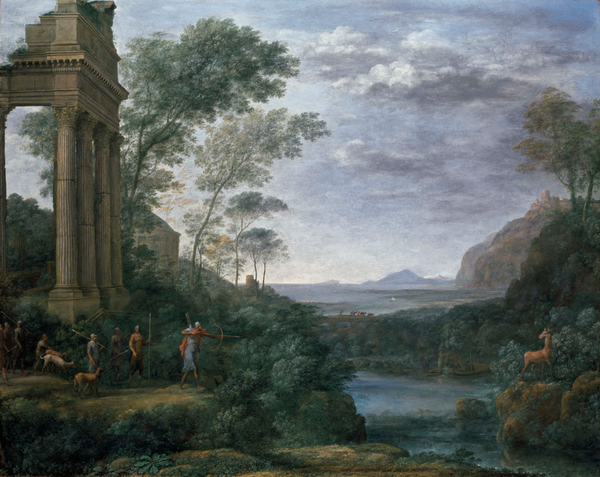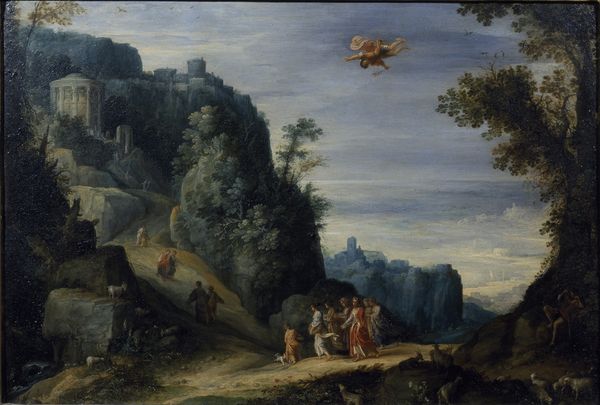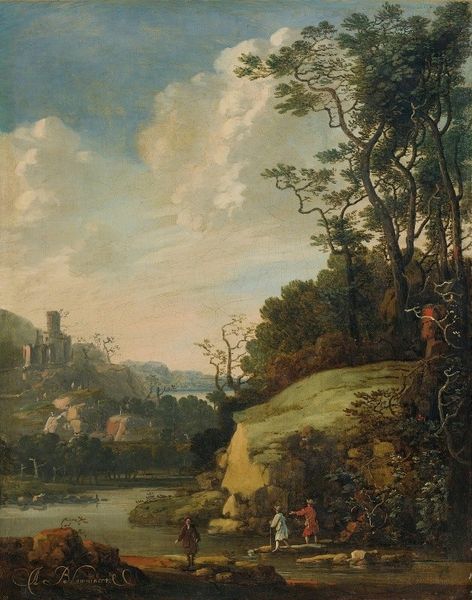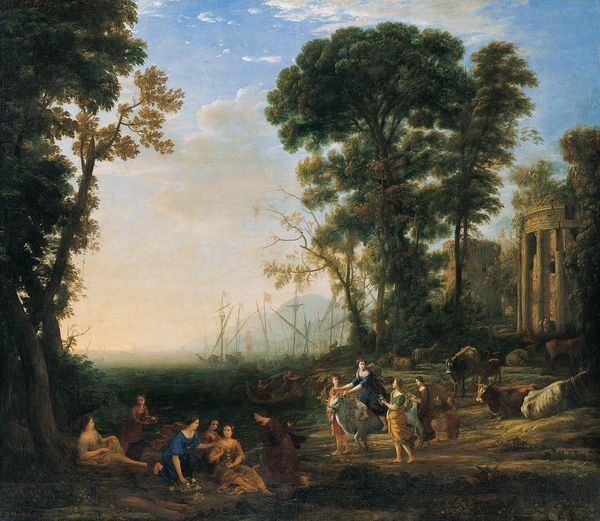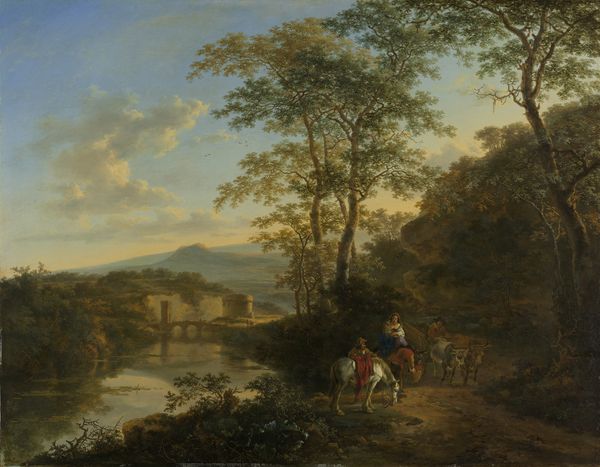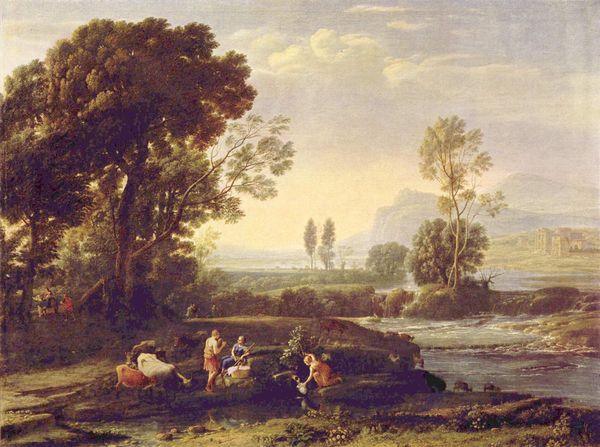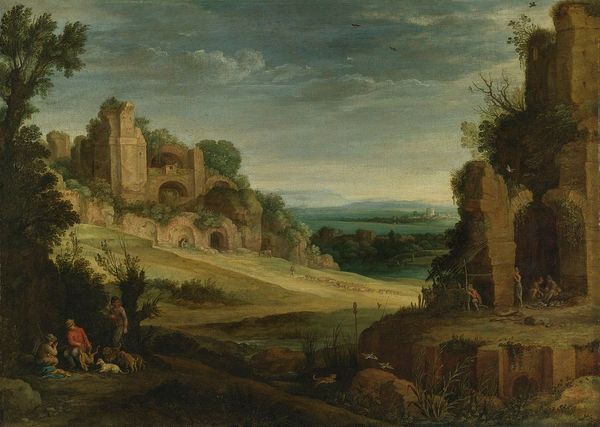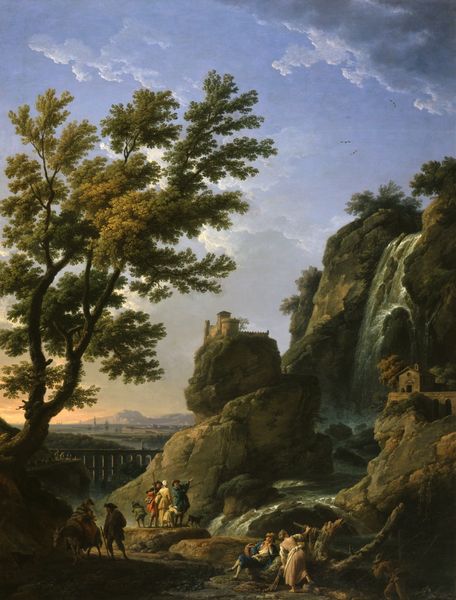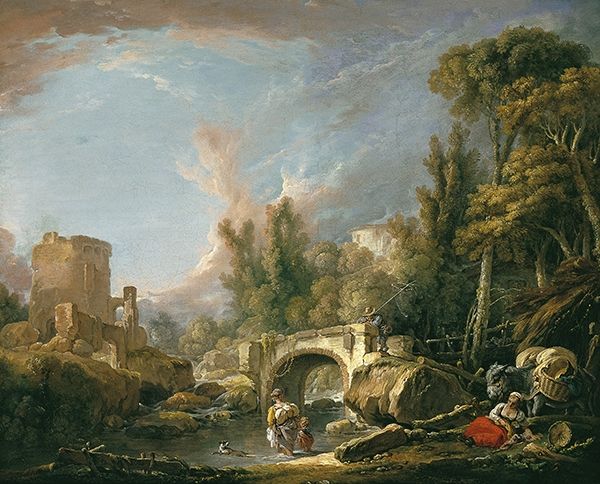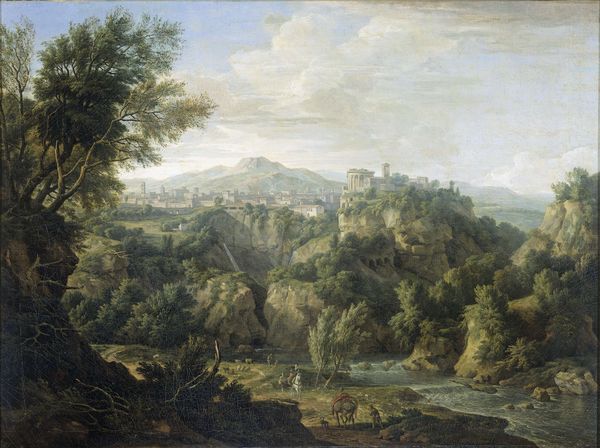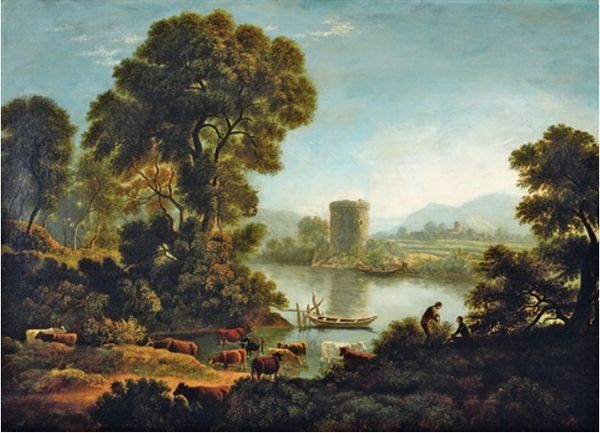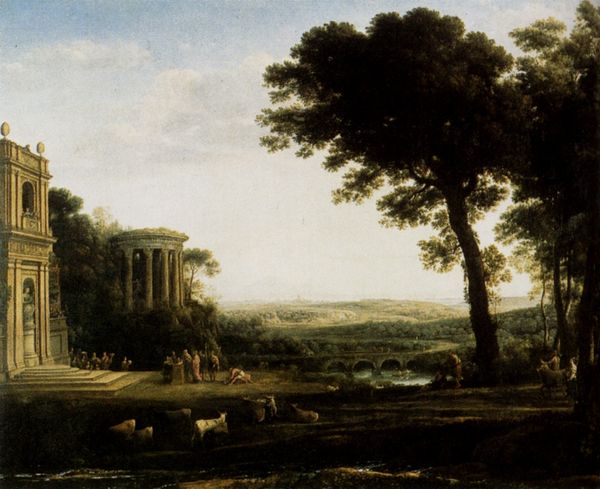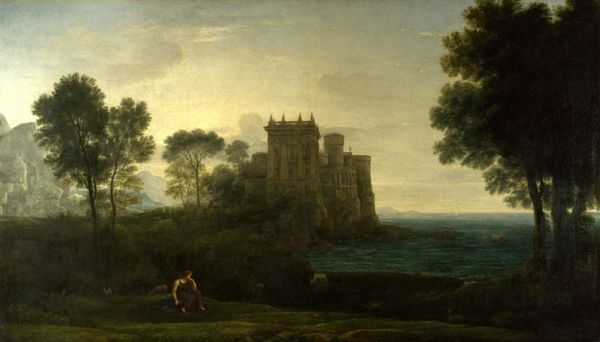
painting, oil-paint
#
sky
#
baroque
#
animal
#
painting
#
oil-paint
#
landscape
#
oil painting
#
column
#
natural-landscape
#
genre-painting
#
history-painting
#
naturalism
#
realism
Copyright: Public domain
Curator: "Pastoral Landscape," painted in 1677 by Claude Lorrain. A masterful rendering in oil on canvas, held here at the Kimbell. What's your immediate take? Editor: It feels like a dream. Everything is bathed in this soft, golden light, even the ruined structures. It’s oddly melancholic but also… hopeful? It’s hard to pin down. Curator: Melancholy is definitely there, palpable even. Lorrain was obsessed with imbuing landscapes with a sense of classical history, wasn't he? Note how the crumbling architecture almost merges with the natural forms around it. A statement about time's passage, maybe? Editor: Absolutely. Ruins, especially in landscape paintings, are such potent symbols of vanished glory. The tower and the distant fortified city, they whisper of empires and stories swallowed by time. And the sheep! Such familiar creatures peacefully meandering through a bygone, hallowed scene. It is so weird and anachronistic but I love it. Curator: Precisely! And did you catch that even the figures in the foreground feel secondary to the environment? They're part of the natural order, blending right in, whereas everything else in the artwork almost has an intentional otherworldly presentation. Editor: They feel allegorical, almost. More representations of humanity's place within a grand, historical narrative than real, tangible individuals. The muted tones enhance that sense, don’t they? Curator: The color palette here, especially, amplifies the impression that these pastoral scenes, and indeed, idealized versions of our lives, are slowly but inevitably transitioning. Nothing remains the same. That the sun itself is fleeting. Even at its apex. Editor: The symbolism is dense. And the landscape acts as an elegiac mirror, reflecting the transience of existence. This painting… it encourages us to look closely at how history and nature entwine and, frankly, slowly destroy each other and, yet, provide beauty in its wake. Curator: I like that - beautifully put.
Comments
No comments
Be the first to comment and join the conversation on the ultimate creative platform.
